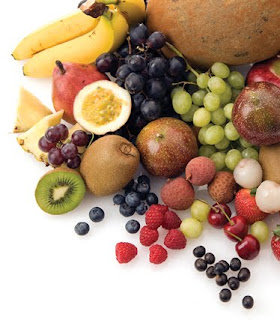 Spinach originates from Asia or Persia where it grew in the wild, and has been cultivated in China for the past 2000 years.
Spinach originates from Asia or Persia where it grew in the wild, and has been cultivated in China for the past 2000 years. Today China is the world’s largest producer of spinach, and the United States the second biggest commercial producer.
Health Benefits of Spinach:
Nutrients :
Spinach is an excellent source of vitamin K, carotenes, vitamin C, and folic acid. It’s a very good source of manganese, magnesium, iron, and vitamin B2. It’s a good source of vitamins B6, E, and B1.
Cancer :
Studies have demonstrated that diets high in dark green vegetables such as spinach are associated with a decreased risk of colon cancer. Researchers have identified at least thirteen different flavonoid compounds in spinach that function as antioxidants and as anticancer agents. Specialized spinach extracts have been created to be used in controlled studies, and these spinach extracts have been shown to slow down cell division in human stomach cancer cells. A study has also shown that higher intake of spinach is related to a lower incidence of breast cancer.
Eyesight :
Spinach is one of the richest dietary sources of lutien, a carotenoid that has been implicated as being protective against cataracts and other age related macular degeneration. In a study at Harvard Medical School in Boston, higher dietary intakes of lutein and vitamin E from food and supplements were associated with significantly decreased risks of cataract. Zeaxanthin is another carotenoid found in spinach, and in a study at Centre for Eye Research in Australia, it was found that high dietary lutein and zeaxanthin intake was associated with decreased prevalence of nuclear cataract.
Heart Disease :
Spinach is an excellent source of folate, which may decrease homocysteine, an amino acid found in blood. A high level of homocysteine is a risk factor for cardiovascular diseases, and studies have indicated that supplementation with B-vitamins, in particular with folic acid, is an efficient, safe, and inexpensive means to reduce an elevated homocysteine level.
Alkaline :
Spinach is an alkaline producing food, making it useful in helping to regulate body pH.
Improves Bone Health :
Spinach is considered to be an important vegetable for maintaining proper bone health. High content of calcium present in spinach helps in strengthening the bones. Vitamin K present in spinach prevents the activation of osteoclasts in excess. The osteoclast levels need to be kept in check because these are responsible for breaking of the bones. Vitamin K1 is converted into vitamin K2 by the intestinal bacteria. Vitamin K2 helps in activating a non-collagen protein called osteocalcin.
In fact the health benefits of spinach are not limited to the diseases mentioned above. They go far beyond that and help in preventing various diseases like anemia,obesity, nerve problems. It also helps to prevent and also treat diseases of the kidneys, bladder and liver.



